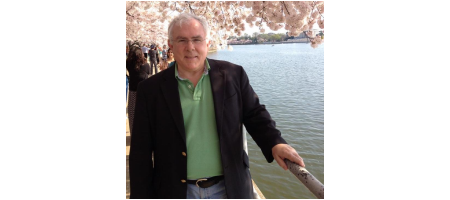I had a delightful surprise yesterday. The hospice where I volunteer as a minister to men who are caregivers and widowers asked me to co-facilitate a grief support group they had recently formed after over a year of not providing one. The first of eight meetings was yesterday. There were 22 attendees, plus the facilitator and me, and a couple of other volunteers for support. One of those volunteers was a lady who had lost her husband several years ago and only recently is emerging from her crushing grief to “give back.” The other volunteer is a man who lost his wife nine years ago. He’s in his 80s and has been serving that hospice for many years, and the staff thought it would be helpful to “seed” the group with hospice people who have walked for miles in their shoes. It’s working.
There were 18 women in the group and four men. All of them had lost their spouses within the past four months. I was so pleased that the men chimed into the discussions and added a great deal.
I was apprehensive about the men in the group before the meeting began. Men are not big on attending grief support groups. These four men proved me wrong, thankfully for everyone.
The meeting lasted for ninety minutes, and at the end of it, the room’s tone changed from silent grieving to participating and even having a few laughs at comments intended to achieve that purpose. At the end of the meeting, new friends were made, and side conversations were going on. One of the men, who knows I work with men, asked for my contact information. Another of the men in the group is someone I have accompanied on his grief journey for several months already.
There is a saying I like that many of you have probably already heard. “People don’t care what you know until they know you care.” Knowing that you care is the glue that holds a grief support group together. Our facilitator is highly credentialed, yet his credibility with this group is empathy—loads of it. The people there knew that he cared; moreover, there were attendees who also made it clear to others that they cared despite their own pain. We are off to an excellent start. The following seven weeks, I expect, will be a godsend to many of the people in our group.
I say all of this to encourage you, my readers, to find a support group that is vital and well-organized if you haven’t already done so. I did not do this until yesterday, and that was as a co-facilitator. It’s been 17 months since my wife transitioned. I have not joined a support group. In my case, I tried months ago, but none were available. Many groups are closed because they do not permit new members while the program is in session. So I opted to have a grief counselor instead. Actually, I had two to start with and told myself I would settle with one of them after a few sessions. Both were great, but one was several more miles from my home than the other, and they did not take Medicare. So I chose the closer counselor and have been with her for a year. We will likely end the engagement sometime next month. We meet bi-weekly. She has been an enormous help to me. I know that she cares.
I said in an earlier column that “grief is love with no place to go.” Many hear that phrase and think it implies a new relationship would be the eventual place for love to go. That certainly can apply for some. Our love for our deceased spouses is eternal, but for many of us, it has no place to go. I have a different spin on that: A good place for your love to go would be a good grief support group. You have a real opportunity to show love for your neighbor as you seek healing for yourself. You will be glad you did.
Michael Burroughs is the author of Moving Mountains and Before Onboarding (both available on Amazon and Kindle). He lives in St Louis, Missouri
Copyright 2023


Leave a comment